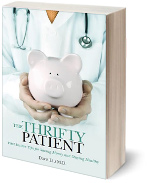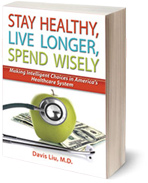Life After Residency / Fellowship – Financial Advice and Planning
 It’s July and the newest doctors, interns, have continued their journey in becoming experienced doctors. These newly minted and graduated doctors have excitement, anxiety, and anticipation not unlike the first day of medical school, college, or high school.
It’s July and the newest doctors, interns, have continued their journey in becoming experienced doctors. These newly minted and graduated doctors have excitement, anxiety, and anticipation not unlike the first day of medical school, college, or high school.
But as new doctors begin their next step, we rarely talk about those who also graduated. Specifically, doctors who have completed their residency and in some cases their advanced fellowship training. What about them? Certainly they have similar excitement, anxiety, and anticipation as they move on in their careers now as attending doctors.
Unlike the past, however, this new part of their lives is less structured. There are no SATs, MCATs, or prerequisite classes to take. There are no applications to fill out. There is no checklist of things to do to get to the next part of training.
In many ways, finishing residency or fellowship, aside from having a job, could be the least structured part of a new doctor’s life. What to do now? No one ever gives us any financial planning advice.
With medical school debt, the ability to now generate income that has been delayed for years (college, medical school, residency), the ability to leave formal education, and the freedom to now live life like their peers who started working after college, business school or law school, I have some suggestions on what our newest colleagues should do.
Take care of your most important financial asset. You.
If you get hurt or ill and you cannot work, all of that training and ability to earn a living is delayed. Yes, you are likely young in your late 20s or early 30s. It is likely you have no major medical problems. You might even have good healthy habits with few responsibilities aside from a significant other or a pet. Yet, as part of your training, you know bad things can happen. Unexpected accidents. Unforeseen illnesses.
Health Insurance.
The first thing you should do is make sure you have health insurance, even if you are between jobs and have no coverage.
Get catastrophic health insurance between jobs. Once you have a job, be sure to have health insurance when you start work and if possible have it active immediately. Currently many non-health care employers do not offer health insurance immediately.
The leading cause of personal bankruptcy in our country is related to medical costs.
Disability Insurance.
Second, purchase disability insurance. Disability insurance provides income if you are disabled for an extended period of time. The amount provided typically has a grace period of anywhere from 3 to 6 months before payments begin. Payments are in the range of 50 percent of your annual salary. Odds of using it? Hopefully low. If it happens to you? Be glad you have it. Your employer may offer coverage.
As a resident, I remember seeing a healthy high school science teacher in the emergency department. I don’t remember what he came in for. What I do remember is that his science career was his second career. His true love was actually general surgery. Unfortunately, shortly after he finished his training, he suffered a significant hand injury which not only decreased his dexterity but resulted in permanent numbness of his fingers. A major problem for a surgeon in the operating room. Fortunately, he had disability insurance and was able to work as a teacher and have some of the income his surgical training would have provided has he had intended, but could not do.
Pay Down Debt.
Third, continue delayed gratification. Pay down your debt as quickly as you can. This could be credit card debt. This could be your medical school debt.
You might have thoughts on how this might be an easy task. After all, if you simply continued to “live” the life of a resident or fellow in terms of the car you drive, where you live, how you eat, and other endeavors, the higher income post-training surely would be more than enough to handle this issue. After all, you’ve delayed gratification enough from going to medical school and then an additional 3 to 5 years of residency and possibly another 1 to 3 years of additional fellowship training. It would be ok to splurge a little. You deserve it.
Yes, you do. Just be mindful of it. Paying off high credit card interest rate debt is like getting an investment return of the same percentage. If your credit card debt has an interest rate of 20 percent, if you pay it down, it is like getting a guaranteed return of 20 percent. Instead of getting a 20 percent “return” you are preventing yourself from “losing” at a 20 percent rate!
Save Money.
Fourth, start saving money. Set up an automatic withdrawal where money is automatically deducted from your paycheck either into a retirement plan or savings account outside of your usual checking account for daily or monthly expenses. When out of sight, it is out of mind. There have been recent NY Times pieces on how doctors are not particularly good at managing money. Don’t be like many of our colleagues.
Start saving money as early as possible. There is the concept of time value of money which all doctors should know about. This basic concept is as important in financial planning as germ theory is for medicine.
Personal Umbrella Insurance.
Fifth, consider getting personal insurance to cover liability for accidents that might occur in your home or due to a car accident. Known as umbrella insurance, it does not cost much add coverage. Though unlikely that friends, acquaintances, or family might sue you if they fell at your home and hurt themselves, the risk is not zero. People might have other ideas when they discover you are a doctor.
Catastrophic coverage, disability insurance, and umbrella insurance coverage are meant to protect you against highly unlikely but potentially problematic financial issues should they occur. Unlike a true “black swan” theory where risks are truly unpredictable, these risks are small but real. Consider these part of a “checklist” as you move on to the next step of your professional career. Life is unpredictable. Doctors don’t like risk. Think of these tips as a way of mitigating that risk.
Congratulations! Wishing you the best in your new roles.
Do you have any other tips for our newest doctors?
 Get important exclusive advice and tips on how to save money while staying healthy.
Get important exclusive advice and tips on how to save money while staying healthy. Learn how to make intelligent choices in America's Healthcare System.
Learn how to make intelligent choices in America's Healthcare System.